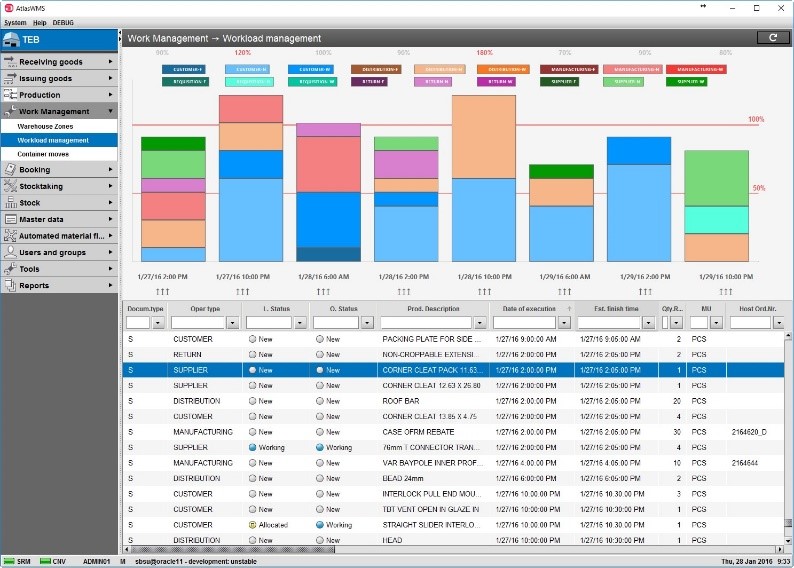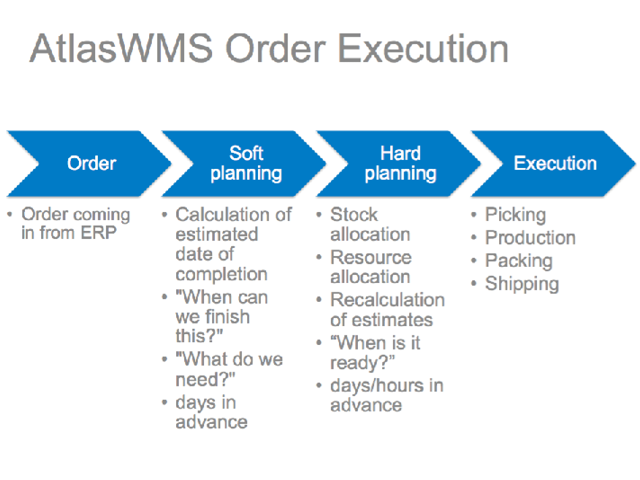Less Time for Order Processing – More Time for Clients!
24. 05. 2018
One of the challenges in the supply chain is the processing of orders, which are still processed manually to a great extent. Automated Order Processing (AOP) is an efficient way of optimising a process that in itself does not bring added value.
Today, speed, efficiency and accuracy are crucial in both the production process and the warehouse. Everything that happens during the production process and/or in the warehouse affects, directly or indirectly, the client or end-user.
The usual procedure of order execution in a warehouse typically involves three steps or decisions:
- We decide when the order will be executed (scheduling);
- We decide who is going to execute the order (assignment);
- We decide which stock will be used for a particular order (disposition, allocation).
With AOP to Fewer Errors and Delays
Usually, all of these decisions must be taken on a daily basis by the warehouse manager or shift manager for each and every order. Every mistake can cause a delay in dispatch, a delay in the production process, problems with stock, complaints from clients, etc. As a result, major additional costs are incurred, and such problems can even result in the loss of the client who placed the order. The majority of orders go through the standard processing procedure; only one to two percent of orders are exceptional and demand greater attention.
The lack of a complete overview leads to poorer decisions, which in turn lead to poorer utilisation of warehouse capacity, the labour force, machinery and other resources.
To a great extent, Automated Order Processing (AOP) resolves the aforementioned challenges. The AOP module that is integrated into Atlas WMS from version 4.9 onwards arranges orders according to preset instructions into a line for execution, automatically allocates them to workstations with free capacities, and selects the most appropriate stock based on the criteria of the order and the stock use strategy (FIFO/FEFO/emptying of locations/etc.).
The warehouse manager or shift manager can now focus entirely on the exceptions – on that one percent of more demanding orders and on problems in the execution of the process itself.
Five Advantages of the AOP Module in AtlasWMS
As Atlas WMS clearly shows the status of the process, orders, stock and devices, constant control is no longer necessary. The AOP module thus enables the following:
- Processing of multiple orders in a shorter time;
- Accurate stock and better utilisation of stock;
- Better use of resources in the warehouse,
- Elimination of the possibility of human error, and consequently
- More time for clients and other value-added tasks.
The warehouse manager can thus channel his/her experience and the time s/he saves into improving warehouse organisation and into the improvement and modification of the rules applying to AOP.

Would you like to find out more?
For additional information contact us.



